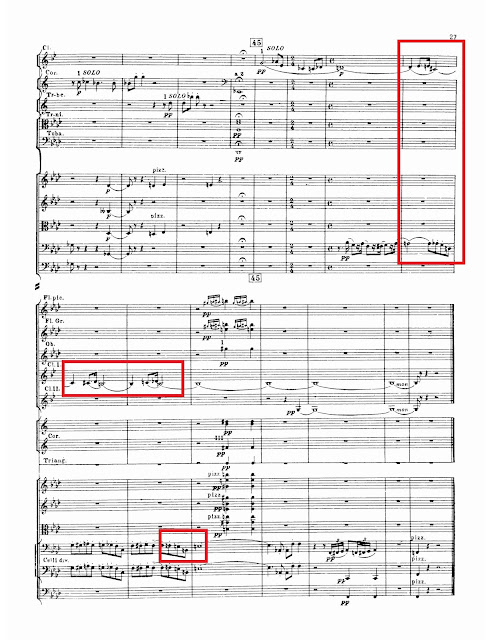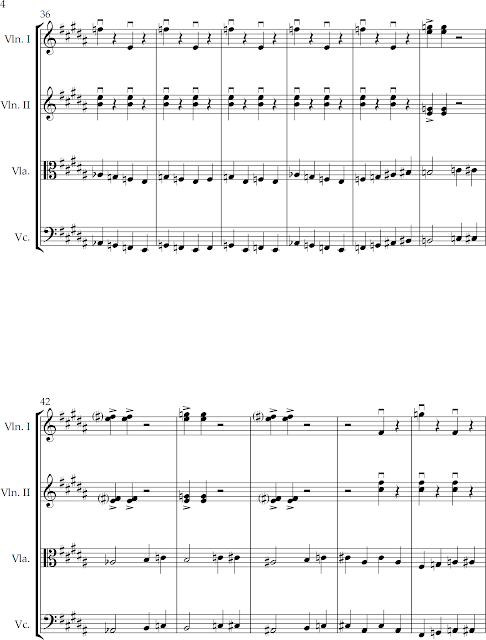DCXVII. SHOSTAKOVICH, Dmitri (1906-1975)
Dedicated "In memory of the victims of fascism and war."
Maxim insisted that his father's dedication referenced all the victims of totalitarianism.
Daughter Galina says that he dedicated it to himself.
His friend, Lev Lebedisky, said that Shostakovich thought of the work as his epitaph and that he planned to commit suicide around this time.
In his liner notes for the Borodin Quartet's recording, Erik Smith wrote:
"The quartet played this work to the composer at his Moscow home, hoping for his criticisms. But Shostakovich, overwhelmed by this beautiful realisation of his most personal feelings, buried his head in his hands and wept. When they had finished playing, the four musicians quietly packed up their instruments and stole out of the room."
These four notes represent Shostakovich's musical signature, DSCH. In German musical notation E-Flat is S; and B-natural is H.
This motif occurs in many of his works, but never as frequently as it does throughout this entire quartet.
The quartet is played with no pauses between movements.
First movement
The motif is played in canon, beginning in the cello; transposed up a fifth for the viola; the second violin at the original pitch; and the first up a fourth:
By bar 17, he is self-quoting, here from the beginning of his youthful First Symphony:
First Symphony:
There follows a melancholy first violin over a drone:
How cleverly DS sets up the key of the next movement (G-Sharp minor) by changing the A-Flat to an enharmonic G-Sharp!
Third movement
The DSCH motif starts us off, but DS switches to triple meter in what sounds like a grotesque dance of death:
Fourth movement
Long note values interrupted by three heavily-accented three-note chords:
Fifth movement
Filled with the DSCH motif, and ending with fading melancholy:
**
We have only to study the music in order to glean a look into this greatest, and most profound quartet of the fifteen.
We have only to study the music in order to glean a look into this greatest, and most profound quartet of the fifteen.
These four notes represent Shostakovich's musical signature, DSCH. In German musical notation E-Flat is S; and B-natural is H.
This motif occurs in many of his works, but never as frequently as it does throughout this entire quartet.
The quartet is played with no pauses between movements.
First movement
The motif is played in canon, beginning in the cello; transposed up a fifth for the viola; the second violin at the original pitch; and the first up a fourth:
By bar 17, he is self-quoting, here from the beginning of his youthful First Symphony:
First Symphony:
There follows a melancholy first violin over a drone:
How cleverly DS sets up the key of the next movement (G-Sharp minor) by changing the A-Flat to an enharmonic G-Sharp!
Second movement
There is an intense ferocity here which once again brings up the DSCH motif:
There is an intense ferocity here which once again brings up the DSCH motif:
Third movement
The DSCH motif starts us off, but DS switches to triple meter in what sounds like a grotesque dance of death:
Fourth movement
Long note values interrupted by three heavily-accented three-note chords:
Fifth movement
Filled with the DSCH motif, and ending with fading melancholy:





























No comments:
Post a Comment